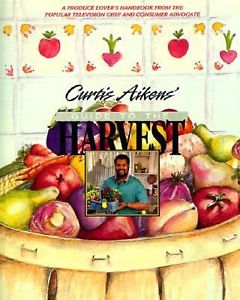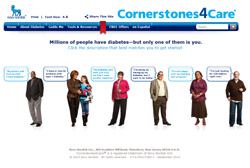The Champ, The Greatest, The Champ is Here—Ali, Ali, Ali!
Was there ever a bigger icon than Muhammad Ali? Not just for his incredible achievements in sports, but for his unwavering stance on social justice, speaking out against injustice at every turn? Ali was more than a boxer. He was a force for change, a beacon of hope. From the 60s and 70s through to his passing in 2016, his legacy has endured—his spirit still resonates today.
Back in the day, when we only had three networks—ABC, CBS, and NBC—Muhammad Ali was always front and center. We’d watch him fight, his energy, his presence electrifying. I remember the 70s, when my mom and sisters were out shopping. My brother Jeffrey and I were glued to the screen, watching the champ. Suddenly, a tornado hit Conyers, but we didn’t even notice. The only thing that mattered was Ali. And somehow, our part of town was the only one that didn’t lose power.
I’ll never forget my mom, standing outside, asking, “Are you OK? Are you OK?” And all I could say was, “We’re watching the champ! We’re watching the champ!” Everyone wanted to be Muhammad Ali. As kids, we didn’t just want to be champions in the ring; we wanted to be champions in life.
I remember when Ali refused to fight in the Vietnam War. He stood tall, a giant in every sense of the word, and I respected him even more for it. His courage was unmatched. Later, when history proved he was right, it only deepened my admiration for him. Now, don’t get me wrong—I’m proud of the men from my town who served in Vietnam, too. They have my respect, always. There are two sides to every story. But the champ? He was a symbol of unwavering belief. He was the greatest, and I’m proud to have witnessed it.
Fast forward a few years, and I’m involved in the early days of the Food Network—helping to build something that would become a household name. I’ve got my own stories from that time, and let me tell you, there’s a lot to tell. Some of the stories have been written about, but I lived them. I was there. Drew Nieporent, the legendary restaurateur, once said, “Those of us who were there, we know. We saw the good, the bad, and the ugly.” It was like barnstorming across the country. I remember doing a cooking demo in Columbus or Cincinnati, Ohio. There were maybe 10 people there. A couple of years later, we came back, and there were 200. Then 2,000. The Food Network was growing, and I was proud to be a part of that.
But through it all, the champ, Muhammad Ali, was one of the people who made a deep impact on me. He wasn’t just a hero in the ring—he was a hero for all of us, especially young Black boys who wanted to be great. We didn’t necessarily want to be boxers. We wanted to be great in life. We wanted to be great sons, great brothers, great fathers. Muhammad Ali showed us that greatness wasn’t just about winning fights—it was about standing for something bigger than yourself.
I’ll never forget the time I met him in New Orleans, at Emeril’s restaurant. It was a packed house, and we were all there, talking, laughing, and enjoying the night. The whole time, Ali was sitting at the head of a table, surrounded by people, just being his incredible self. Then, as he was about to leave, he stood up, and the room gave him a standing ovation. It was magical. But what happened next left me speechless.
As Ali walked toward the door, he noticed me clapping and grinning like a fan—and, well, that’s exactly what I was. But he did something I’ll never forget. He started shadowboxing, right there in the middle of the room. Left jab, right hook, uppercut—he was in full champ mode. And me? I’m clapping, laughing, thinking, “Oh my gosh, should I pretend to box with him? What if he knocks me out?”
But it wasn’t just a playful moment. As he got closer, about three feet away, Ali threw a punch—his right hand—so fast and with such power, it stopped just short of my nose. I could feel the wind of it. And then, as if in slow motion, he wrapped his arms around me.
He squeezed me tight, and whispered in my ear, “You beautiful young man, I’m just trying to pay the bills.”
I stood there, holding on to him, as if time itself had stopped. I felt the weight of Black history in that embrace. I felt Rosa Parks, Sidney Poitier, and the generations before me, all coming together in that moment. I felt my mom, my dad, my grandfathers—all of them, their strength, their sacrifice, their love, all wrapped up in Ali’s words.
The lesson I took from that moment? Sometimes, we just have to do what we need to do to take care of our families. No matter the struggle. We have to make sure the lights stay on, the bills are paid, and that we keep pushing forward. Ali was telling me that greatness doesn’t come without responsibility.
A couple of years later, I had the honor of cooking at the Muhammad Ali Museum. I got to work there, preparing meals for an event, and while I was getting things ready, someone told me, “Ali’s upstairs, watching film.”
I couldn’t believe it. I had to go up and see him. I didn’t want to interrupt—just wanted to be near him again. It felt like a dream, but it was real. It was as if the universe had brought me full circle, from watching him fight on TV as a kid, to now, working in his museum.
Ali’s life was a reminder to me—and still is—that greatness is about more than the glory. It’s about standing tall for what you believe in, speaking out when you see injustice, and doing the hard work, even when it’s difficult.
So, I don’t judge people when they’re out here trying to make a living. It’s tough out here. But we stay prayed up, trust in God, and lean on the people we love. And above all, we remember the lesson of Muhammad Ali: to always strive for greatness, and to never back down from what you believe is right.Thank you, Champ. Thank you, Muhammad Al


